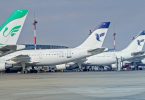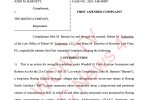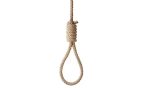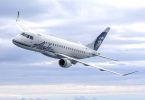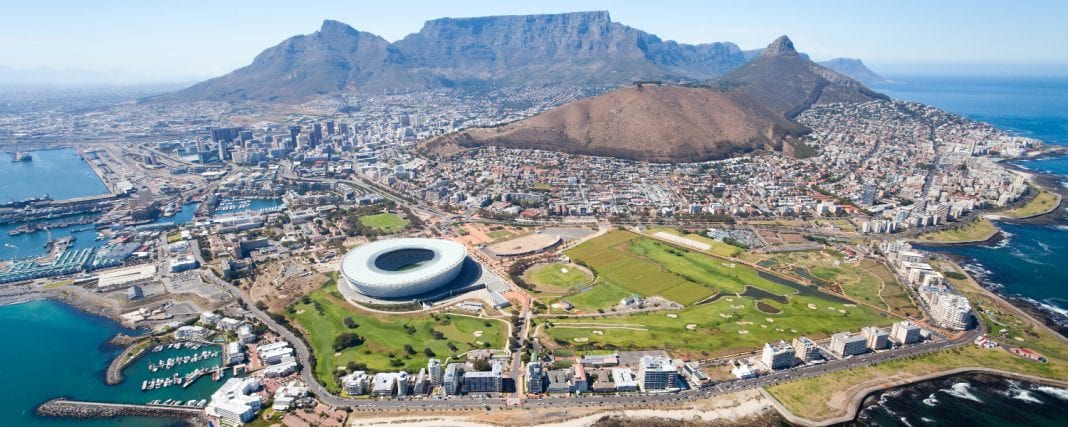The world’s major airlines are faced with a sobering reality: For some to survive, others must die.
A punishing recession is continuing to hammer passenger traffic, and it will be years before ticket purchases return to pre-downturn levels. Now, the trade association that represents about 230 airlines around the world is recommending a major shakeout for the industry – even though that would mean fewer members belonging to their club.
Since 2008, 29 global carriers have halted operations, but more shutdowns are needed, as well as a round of blockbuster mergers and acquisitions, says the International Air Transport Association. IATA is pushing governments to raise foreign ownership limits on airlines and also allow consolidation across borders to help resolve the problem of too many airplanes chasing too few passengers.
“We are not asking for bailouts, if you see what governments in the States and other parts of the world have given to financial institutions, banks or the car industry,” IATA director-general Giovanni Bisignani said during a conference call Tuesday. The association’s members account for 93 per cent of global scheduled air traffic.
IATA wants governments to embrace “open skies” by approving new routes, even cases of “cabotage,” where foreign carriers would fly point-to-point within another country.
For instance, British Airways PLC flies between Canada and London’s Heathrow Airport; with cabotage, it would also be allowed to fly domestically between Toronto and Vancouver, for example.
Ottawa plans to increase foreign ownership limits on airlines to 49 per cent of voting rights from the current 25 per cent. Regulations are being drafted and slated to be enacted by the Canadian Transportation Agency, a Transport Canada spokesman said.
Mr. Bisignani said the airline sector, whose financial results have been crushed by plunging business-class traffic during the recession, has been unfairly handcuffed by global regulations that divvy up routes based on each carrier’s country of origin. “We are just asking, ‘Please. Let us run our business as a normal business.’”
“Give to the airlines an opportunity to expand in the areas in which there is a growing market and not be limited to the national borders,” he said.
In a prepared speech to the International Aviation Club of Washington, Mr. Bisignani said that beyond open skies, airlines need lower taxes and the freedom to merge with each other, if necessary.
“The ability to merge or consolidate across borders could be a lifeline, particularly if the situation gets bloody later this year,” Mr. Bisignani said. “In a global business, why restrict consolidation within political borders?”
He said the international airline sector is facing a “massive crisis” that is worse than the damage it suffered after the 9/11 terrorist attacks. With the recession curbing premium travel and high fuel prices slamming carriers, industry losses could total $27.8-billion (U.S.) for 2008-09, eclipsing the $24.3-billion in losses in 2001-02 that were triggered by the attacks on Sept. 11, 2001.
IATA is forecasting $11-billion in losses this year among its members, up from its previous estimate of a $9-billion loss. The group also issued its first financial forecast for 2010, estimating industry losses of $3.8-billion, hampered by still-weak cargo shipments.
Passenger traffic at the front of the plane in first class and business class has fallen 20 per cent from a year ago, compared with a 5-per-cent decline in economy-class traffic, according to IATA statistics.
Contributing to the financial stress, the premium cabin is often dominated these days by travellers with heavily discounted tickets and flying on reward points. It could take another six to nine months for elite fliers to start returning to the skies in a fragile recovery, Mr. Bisignani said, adding that he doesn’t see industry revenue returning to 2008 levels until 2012 at the earliest, assuming cost-cutting measures are effective.
“A very difficult moment was Air Canada,” he said of the Montreal-based carrier, which lost $1-billion (Canadian) in 2008 and posted a $245-million loss in the first six months of 2009. But Air Canada secured $1-billion in financing in July, averting a filing for bankruptcy protection. “It’s now moving in another way,” Mr. Bisignani said.
Karl Moore, a McGill University business professor and frequent flier, said it won’t be easy to overcome protectionist sentiment in countries around the world when it comes to attempts to liberalize aviation markets.
“But as the industry situation gets bleaker and bleaker, there might be more flexibility because of the troubled times,” he said.
Industry observers say European legacy carriers such as Deutsche Lufthansa AG and Air France-KLM are in a position to be acquirers, or relatively strong players could also be suitors, including Emirates Airline, which is owned by the Dubai government.
Should premium class among IATA members fail to rebound, new long-haul entrants with single-class cabins on transpacific and transatlantic routes could emerge, Prof. Moore said.



